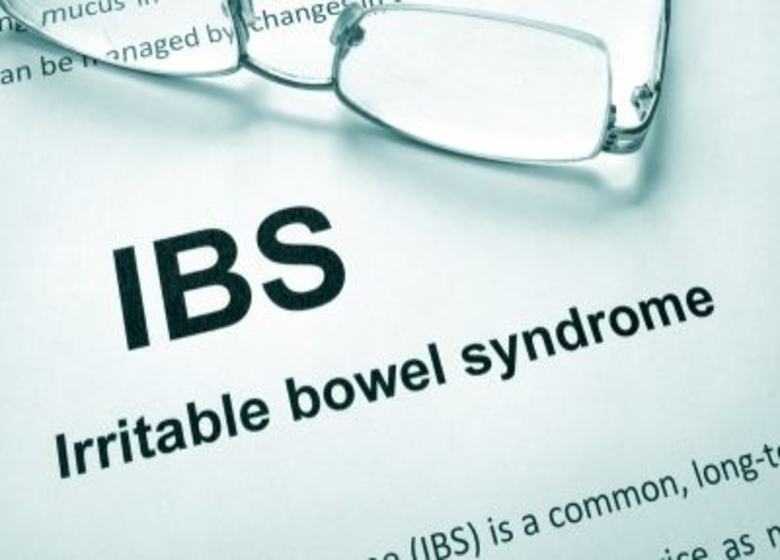Irritable Bowel Syndrome (IBS) in Children
You try to get your child to eat healthy food as a parent, but it’s not an easy task, is it now? There are so many options that children nowadays don’t like homemade food. They love to eat pizzas, burgers, noodles, and other street foods. It’s fine to indulge in these foods once a while, but if your child eats outside food every other day it can lead to problems with the stomach. Problems with the stomach usually arise when children eat too much food outside. If your child feels tremendous discomfort in the stomach, it may not be associated with any allergy as such.
What is Irritable Bowel Syndrome?
Spastic colon, irritable colon, microvascular colitis, and spastic colitis are also known to be Irritable Bowel Syndrome. It is a separate condition from inflammatory bowel disease and is not associated with other conditions of the intestine. IBS is a group of typically occurring intestinal symptoms together. The symptoms vary from person to person in severity and duration. They last for at least three days per month, however, at least three months. In some cases, IBS may cause bowel damage. That’s not common though. IBS does not increase your risk of gastrointestinal cancer, but it can still affect your life significantly.
How common is Irritable Bowel Syndrome among children?
Irritable bowel syndrome (IBS) is common today. No specific study has been conducted to develop a good statistical understanding of IBS cases in children. About 15 percent of children suffer from this, though.
Causes Of IBS In Children:
For the following reasons, irritable bowel syndrome can be caused in children.
1. Hereditary Reasons:
Genetics play a key role in children’s development of any disorders. If you or your partner had the same problem, your child’s chances of suffering from IBS are significantly higher.
2. Overgrowth Of Bacteria:
Our gut contains numerous bacteria, most of which are the good ones that help maintain a healthy gastrointestinal tract. However, if these bacteria grow above a healthy threshold, an effect similar to the child’s IBS may result.
3. A Stressful Life:
A stressful at home or even at school, combined with numerous factors resulting in the child’s sadness and anxiety, may not cause IBS, but it may certainly aggravate it.
4. Presence of Gastroenteritis:
Although your child eats healthy foods, these foods may have different bacteria present in them. Salmonella is one of the key ones, which is known to cause immense discomfort in a child once it enters the intestinal tract.
5. Neural signals:
This is not exactly a neurological disorder, but there is certainly a brain dependence. The intestines function properly based on brain-received signals. The functionality of the entire GI tract could be affected if there is any discrepancy in these signals, leading to the emergence of IBS.
6. Sensitive Abdomen
Some kids tend to have a relatively sensitive stomach or intestine that reacts to the slightest presence of an allergen or other food items. Such children tend to face much higher frequency symptoms of IBS, resulting in recurrent stomach aches and diarrhea.
7. Motor Issues of the Tract
Apart from external factors, the erratic functioning of the motor within the GI tract is a primary reason for IBS to occur in a child. Excessive motility leads to diarrhea whereas constipation results in too little.
Symptoms Of Irritable Bowel Syndrome:
It takes a while to diagnose IBS because its signs and symptoms are quite similar to other disorders of the stomach. If the symptoms persist for a long time, the presence of irritable bowel syndrome may be indicated. Some of a child’s obvious symptoms of IBS are:
- Abdomen Bloating
- After pooping spotting of mucus in the stool
- Constipation, which keeps getting worse, and the stools passed are quite hard
- Uncontrollable pooping
- Diarrhea that causes him to pass watery stools several times a day
- The stool’s texture varies from the usual days
- Recurrent complaints of stomach pain that lasted more than a few weeks
Pain Of Irritable Bowel Syndrome:
IBS pain might feel cramped. You will also have at least two of the following experiences with this cramping:
- Some pain relief after a bowel movement,
- Change the frequency of your bowel movement
- Changes in the appearance of your stools
Diagnosis Of Irritable Bowel Syndrome:
Based on your symptoms, your doctor may be able to diagnose IBS. Here is how the diagnosis may be done:
- At first, a blood test is usually performed. It helps to determine the presence of any infections or problems that may cause the problems.
- An endoscopy may be performed by your child’s doctor to get closer to the solution. This involves inserting a tube into the stomach through the mouth and watching it carefully while sampling.
- An x-ray of the abdomen is generated to get a better idea of how the organs are placed.
- Most doctors, along with the x-ray, choose to perform an ultrasound that gives an even better picture of any biological anomalies.
- In addition, in medical analysis, a stool sample plays a vital role. This not only checks for any parasites in the body but also looks for any occult blood that might indicate an inflamed intestine.
- Many times, an undetected lactose intolerance could result from stomach ache and diarrhea. For a lactose breath hydrogen test, the same is checked.
Treatment of IBS In Children:
Although there is no cure for IBS, a combination of the following can be used to treat the symptoms:
- Changes in eating, diet, and nutrition
- Medications
- Probiotics
- Therapies for mental health problems
1. Diet Change:
Children’s IBS diet is generally the standard one for everyone. A child with IBS should not eat milk products, artificial drinks, fatty foods, and other gases that cause items. Meal portions should be kept small and fiber intake should be encouraged but maintained within reason.
2. Medications:
The first step in helping a child with his condition is to ensure that the child’s discomfort and pain are reduced in order to help him return to normalcy. Some medicines may be needed if the stomach ache is severe or if there is a need to control diarrhea. The following types of medicines are generally used in different forms:
- Mood-regulating drugs which can act as painkillers and reduce stress in order to regulate intestinal activity.
- The control of water and nutrient loss by stopping diarrhea may be suggested by medicines.
- To increase fibers, while stimulating bowel movements with laxative substances, in the body with supplements.
3. Probiotics:
Probiotics are live microorganisms, usually bacteria, similar to microorganisms that are normally found in the tract of GI. Studies have demonstrated that steroids, particularly bifidobacteria and some combinations of probiotics, improve IBS symptoms in large quantities. More research is necessary, however. Dietary supplements like capsules, tablets and powders and some foods, like yogurt, contain probiotics. In order to improve IBS symptoms, a health provider can give information about the right type and correct amount of probiotics.
4. Therapies:
It is highly necessary to combat stress and anxiety within a child in order to be effective in any other treatment method. Cognitive therapy is usually performed to teach the child how to handle the problem on his own. In some cases, a child may undergo hypnotherapy to relax his body and also relieve the muscles of the colon from stress.
IBS can easily ruin the best years of your child and create embarrassment in it. But you can treat the root cause of the problem by taking a few precautions and administering IBS medication and make sure that your child stays healthy.
Also Read: Know What Is Reye’s syndrome In Children













